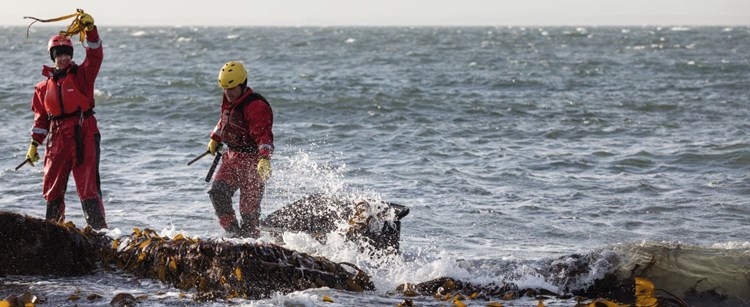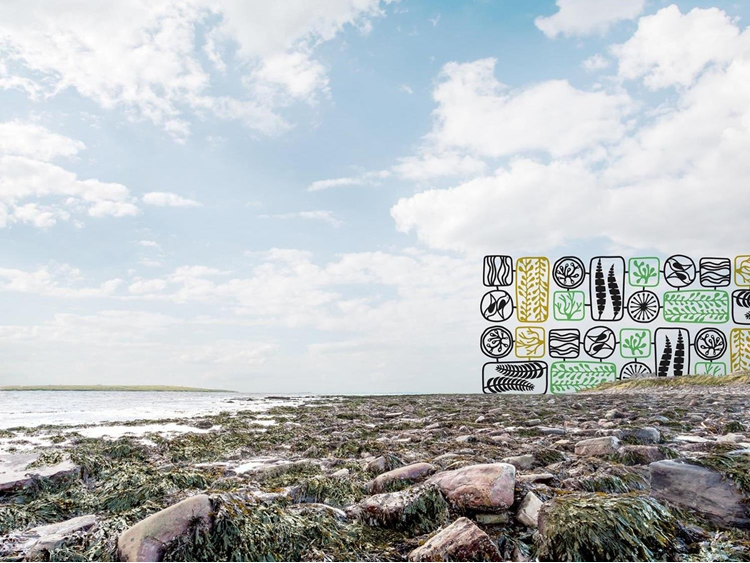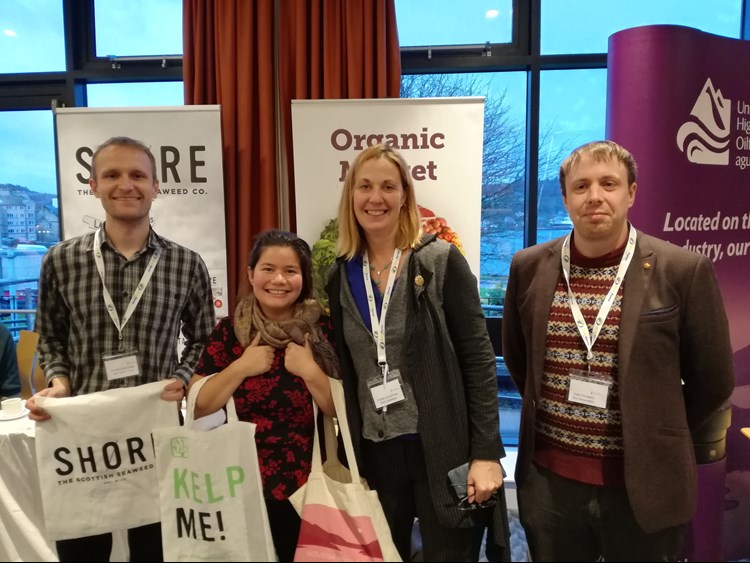The Case for Organic Seaweed
Seaweed is amazing. It plays an important role in coastal and marine ecosystems. Kelp forests are one of the most productive and dynamic ecosystems on Earth, with kelp often described as ‘ecosystem engineers’. Seaweeds
- are a valuable food source for all sorts of animals
- are habitats for animals and other marine plants
- protect coastlines from storm damage by reducing the wave energy reaching land in large kelp forests
Seaweeds also have many uses out of the water! They can be used in agriculture as fertiliser, can enhance soil, be eaten as food and have uses in the production of cosmetics.
Where can we get it from?
The Scottish coastline famously offers fertile grounds for producing seaweed, specifically kelp. Kelp doesn’t have roots, instead anchoring to rocks on the seabed before rapidly growing to the surface. It has long been harvested in small numbers but naturally, commercial firms are turning their eye to the dense forests of kelp that grow off the coast, where much greater quantities can be harvested directly.

Photo Credit: Mara Seaweed, sustainable harvesting in Fife, Scotland
Can this be done sustainably?
Large scale harvesting companies around the world, use comb-like harvesters measuring between three and four metres to trawl the seabed, removing entire kelp plants. Proposals to do this in Scotland is causing friction between commercial organisations and environmentalists as removing large quantities of seaweed from the ocean has potential to destroy habitats. There are serious questions around how sustainable commercial harvesting of seaweed is.
Can organic standards help source seaweed sustainably?
First, we must question what sustainability means in the seaweed industry. And with regulations in Scotland currently set by the Crown Estate, how much influence can we as an organic certification body have over the future of the industry?
In November 2018, we went to the annual Scottish Seaweed Conference in Oban to discuss the topic and present the opportunities for organic seaweed. Strong views for and against mechanical kelp dredging dominated the event and it was a great opportunity to engage with an emerging cultivation industry and embed sustainability from very early on. The presentation was very positively received particularly from delegates at the conference who’s ambition for the industry is sustainability. There was also big support for farming seaweed in a way that will enrich marine ecosystems and contribute to tackling climate change.
What will organic standards help achieve?
Organic seaweed standards protect our marine and coastal environments, protecting biodiversity and water quality. Sites for harvesting and cultivating seaweed must be specially selected to not affect the stability of the natural environment or species within it.
For wild harvesting of seaweed, a biomass estimate must be completed before beginning production and harvesting methods must be justified as sustainable and appropriate to the environment.
For cultivation, local species must be used to preserve the genetic diversity of seaweed species and promote resilience of the plant and the surrounding ecosystems. Some countries have suffered huge seaweed crop failures as a result of a monoculture approach.

Photo Credit: Shore Seaweed - Sustainable Harvesters in Wick, North Coast of Scotland
What will the seaweed be used for?
Seaweed has a huge variety of positive applications:
- Excellent soil enhancers: The benefits of kelp have long been known to farmers in coastal areas. Farmers across the country, conventional or organic are all crying out for improved soil health and quality and overcoming dependences on quick nitrogen fixes.
- Fungicidal properties: Seaweed can stimulate a crop’s own immune system without damaging the plant making it much more resilient to disease without the use of chemical fungicides.
- Cutting methane emissions in cattle: The red meat industry is coming under a lot of scrutiny recently in terms of greenhouse gas emissions and more specifically methane. Some research is finding that seaweed can have an incredible impact on reducing methane emissions in cow burps!
- Cosmetics: The UK organic health and wellbeing sector grew by 24% in 2017 with growth looking to continue in 2019. The multiple benefits of seaweed for our health are meaning there is a huge demand for seaweed products in a variety of forms.
- Food: Big organic brands such as Duchy by Waitrose, Clearspring and small start-ups are looking to add that iodine health kick and tasty umami flavour to a wide variety of snack foods like oatcakes, snack foods, soups, tinned fish, meat alternatives, salad dressings… the list goes on.
So, what does the future of seaweed cultivation look like right now in the UK?
On the 21st November 2018, the Scottish Parliament voted to back an amendment to the Crown Estate Bill which would ban mechanical kelp dredging or any methods which would ‘inhibit the regrowth of the individual plant’. This is great news! They are also launching a full review of Scottish seaweed harvesting rules as the Crown Estate land only covers half of the foreshore. This is in no small part due to activists across Scotland campaigning to #helpthekelp and local political support.
We have already started working with several independent companies such as Mara Seaweed and Shore Seaweed in Scotland and the Cornish Seaweed Company in Cornwall who are trailblazing methods of harvesting seaweed in a sustainable way. We are continuing to engage with interested businesses, from harvesters, farmers and processors along the supply chain to ensure organic principles of health, ecology, fairness and care are at the heart of this burgeoning industry.

Photo: Peter Elbourne, Shore Seaweed; Isla McCulloch, Soil Association Certification; Fiona Houston, Mara Seaweed; Dan Thomas, Soil Association Certification at the SSIA Conference November 2018


